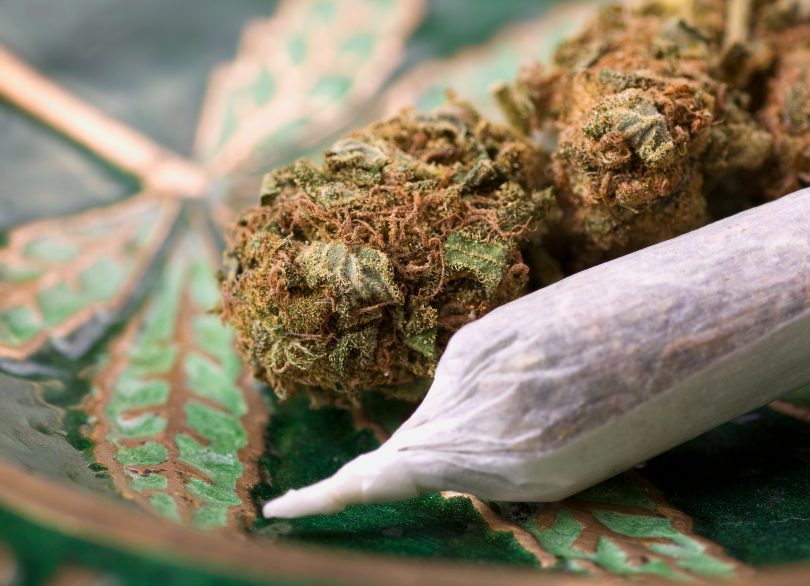They say that rules were made to be broken, and Spain’s cannabis clubs are the perfect example. Exploiting legal ambiguities has been a part of human existence since the inception of rules, but some loopholes are just way cooler than others.
A common misconception of Europe is that there are countries, or locations, where cannabis is entirely legal. Technically this isn’t true at all. Not even with the coffee shops in the Netherlands, Christiana in Denmark, or Spain’s cannabis social clubs. Technically cannabis is not fully legal in any of these places, yet all of these places have legal loopholes, or a government willing to turn a blind eye. In the case of cannabis clubs throughout Spain, it’s an interesting legal framework that put it all into place.
Looking for the BEST Flowers? Subscribe to the Medical CBD Flowers Weekly Newsletter, below:
Basic Spanish cannabis laws
When it comes to cannabis, Spain is already one of the more lenient countries, even if it is still technically illegal commercially, and frowned on to use in public. According to the Law on the Protection of Citizens’ Security, it goes something like this: public use or possession of drugs (as of 2019) is a non-criminal order offense which is punishable by fines from 600-30,000€ depending on the specifics. This fine is often waved for minors who agree to counseling, rehab, or some other treatment option.
It is decriminalized for personal cultivation and use for adults so long as it is done on private property, though with large numbers of plants (no exact amount given), it can be deemed that a person is trafficking it, at which point said individual can be charged. This is up to the discretion of cops and/or judges as there is no exact number by which a person has most certainly gone from personal use to commercial, and each situation is investigated on its own.
When it comes to the transporting and selling of cannabis, it’s a criminal offence in the criminal code, and punishable with jail time. For cannabis, which is generally considered a drug that isn’t associated with severe damage, the repercussions are about 1-3 years in prison, whereas for harder, and more dangerous drugs, the sentence is more like six years. In the most extreme, particularly bad cases, it can be up to 21 years.
When it comes to isolated cannabinoids like CBD, preparations are allowed so long as the level of THC in them is .2% or below. THC – tetrahydrocannabinol, is the cannabinoid responsible for the psychoactive effects in pot, whereas CBD – cannabidiol, is another cannabinoid without psychoactive properties that is being used increasingly in a medicinal capacity all over the world.
The .2% is a standard max THC level for the entire EU, although some countries have chosen to be more restrictive, while others (like Switzerland – which is technically only EU-related) have chosen to increase the max. It does seem like a silly requirement for Spain at this point considering they already legalized the whole plant for personal recreational use.
So, what’s a cannabis social club?
To recap, weed isn’t technically legal in Spain in all ways, but you can grow it and use it pretty freely in private for personal use. The growing of it for commercial use, along with transporting and selling it, is illegal and punishable by law.
A Beginner’s Guide To Growing CBD Flowers: Part 1, The Basics
But there’s one other little thing that the people of Spain have to get around their already not-that-restrictive weed laws – cannabis social clubs. Operating in a legal wiggle space that goes off the basis of adults being able to cultivate and use cannabis in private, cannabis social clubs were fashioned as non-profit organizations to avoid the illicit drug market by creating a circular system of growing, distribution, and use, among a specific group of people on private property who are all a part of the same organization.
The clubs, therefore, cultivate for their paying members (as there is typically a membership fee to cover costs), while providing them a place to obtain and use their weed in a social manner. Some clubs exist with less than 3,000 members, while others exist with up to 50,000 registered members (though all might not be active at once). There are hundreds of clubs currently in operation around the country.
Legal loophole or a blind eye?
There’s often talk about whether Denmark’s Freetown Christiana is an actual oasis within Copenhagen where drugs are legal to buy, sell, and use. It is true that in Christiana, a small section on Copenhagen’s east side, drugs are sold openly along Pusher Street which runs through the enclave, and they have been for decades with very little police interruption, which is why people believe this. It’s not true though, and in reality, really just the authorities turning a blind eye.
Denmark isn’t exactly liberal when it comes to drugs, and even in the earlier days of Christiana back in the 70’s, it wasn’t legal then either, but rather than violently evict the peaceful hobos who had taken over the military base in 1971 starting this whole ‘social experiment’, the police allowed them to stay, a decision that reverberates today with the current existence of Christiana, and the open drug trade within.
It is a testament to something that through the years, as different legal provisions have come and gone, Christiania has always survived, leading to a current situation where Christiania is partially owned by its residents. The residents also have a certain measure of self-governance, and whereas this could almost seem like a form of placation, without any real value, the illegal activity that persists as regular every day culture says otherwise.
Is Denmark’s Freetown Christiana Cannabis Oasis, an Indicator of What’s to Come?
And all this even despite shootings in 2005 and 2016, and a grenade attack in 2009 (though the people of Christiana are known to be peaceful, drugs do come with problems at times). My guess is that as a top tourist attraction, the Danes are reluctant to remove it after all these years, especially as it stands for peace and liberty and would cause quite a stir if aggressively destroyed. And so, Christiana continues, not because it’s technically legal, but because no one is going to stop it.
The same could be said for cannabis social clubs in Spain. If the same reasoning had been used to start them up back in 1930, it would have been smashed down immediately. But timing can be important for social improvement, and by the time they did come around, in the 1990’s, opinions were already starting to change. Like Christiana, the legalities seem to matter less than what the public wants.
If this needs backing up, Spain’s supreme court stated in 2015: “Organized, institutionalized and persistent cultivation and distribution of cannabis among an association open to new members is considered drug trafficking”, yet so far, any attempt to apply regulation to these clubs on a local level has been considered unconstitutional, and there hasn’t been a massive push to do anything about them. Much like Christiana, they provide a huge general tourist attraction, especially in the growing cannabis tourism world.
Complete legalization to come?
For a country where weed isn’t legal, it’s pretty close to being legal in Spain. In 2018, a measure was proposed by the far-left political party Podemos to legalize across the board, but it didn’t go very far. In general, probably because the laws are already lax, there usually isn’t much pressure in the political world on this topic.
The factor that could change this is that Podemos leader Pablo Iglesias became the Second Deputy Prime Minister in January 2020, following the April 2019 Spanish general election. As of yet, no policy has changed, but having the Podemos leader in a greater position of political power certainly gives credence to the idea that it might.
Conclusion
When it comes to full cannabis legalization, Spain might end up doing it soon, or it might not, but either way, through personal use laws, and cannabis social clubs, there’s a lot of weed freedom already. What Spain could really use is a medical cannabis program. With all the talk about decriminalization and loopholes and social clubs, the one thing Spain managed to overlook, was setting up a way to actually and officially use cannabis as medicine. Perhaps this will be the next step.
Thanks for stopping by CBDtesters.co, check back regularly and make sure to subscribe to the Medical Cannabis Business Newsletter to stay updated on all things CBD, hemp, and legal-weed related.







